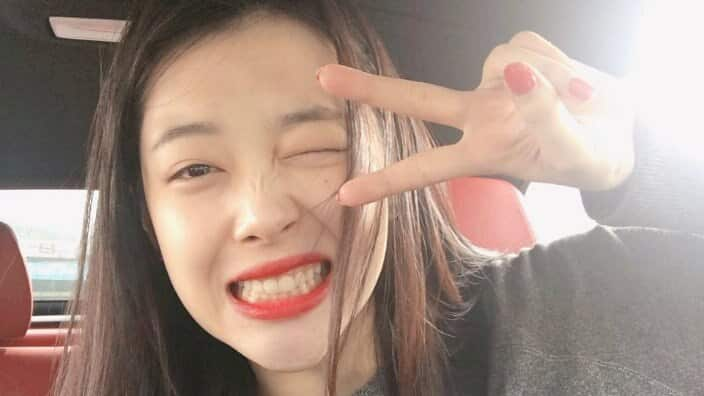A member of Fantagio's actor group Surprise U, Cha In-Ha, has been found dead in his home on Tuesday, two weeks after Goo-Hara’s body was also found in her home.
Cha In-Ha was just 27, and Fantagio have requested people to limit speculation about his death, to spare the family additional grief. Cha In-Ha’s death has renewed the spotlight on the toxic aspects of the industry. Kang Daniel, former member of the hit boy band Wanna One, in December decided to take a break as he was suffering from depression and panic attacks, his management agency Konnect Entertainment said.
K-pop began in 1992 and has since become a global cultural phenomenon but at the cost of its talent. Stars have complained of depression, while others have indicated more concrete signs of a highly toxic industry that, behind the glamorous and shiny exterior, tramples on human dignity. Since the 1990’s, there has been a succession of deaths in the K-pop industry.
Goo Hara was just 28, and a former member of the five-part girl group, Kara, from 2008 to 2015. She performed as a successful solo artist following her departure from Kara, as well as working in film and television. Goo Hara’s cause of death is unknown. Earlier this year she was found unconscious in her home after having attempted suicide.
University of Western Australia Associate Professor of Korean studies Joanna Elfving-Hwang said the deaths of so many K-pop stars are a result of their construction as popular culture products. She said the number of K-pop idols who have taken their own lives in recent years is “alarmingly high” and “reflects the unrelenting pressures to literally perform aesthetic and moral perfection.”
K-Pop talent are often “discovered” when they are in their early teens and are subject to tight controls over their personal lives. Their image is so meticulously maintained, Professor Elfving-Hwang says, that regular routines include, “fitness classes and special diets, and in some instances cosmetic surgical procedures.”
They go through a high pressured, intensive training system and become proficient in performances such as rapping, dancing, singing and foreign languages. Those who can hang in the longest are the ones who “make it.” According to Professor Elfving-Hwang, their private lives are also outside of their control - they are often banned from having romantic relationships by management.

Management companies will create an online presence and create a customer base before the talent has even launched. They drip-feed teaser content through websites and establish a social media presence before launching. The social content is then maintained almost 24-7, with what psychologists call a “parasocial’ relationship” – intimacy at a distance.
Professor Elfving-Hwang says of the social media offerings, “The ‘intimate’ setting and low-key mode of delivery are utilised effectively to bridge the emotional distance between the idol and the fans without the need to meet in person.” They offer intimate insights into their lives, but maintain fluidity to their image, as too many markers of an individual identity limit the stars as objects of consumption.
Goo, whose real name was Goo Ha-ra, was also a close friend of Sulli, who took her own life in October this year. Sulli, a former member of f(x), was known for her outspoken opinions which unsettled the tightly controlled industry. Sulli had been the target of cyber-bullying reportedly from fans who disliked her indifference to K-Pop norms. For example, Sulli had disclosed her relationship, challenging the industry’s perception of young female K-Pop stars as sexually desirable but green. Sulli, whose real name was Choi Jin-ri, also was an advocate for going bra-less, and had posted pictures of herself wearing t-shirts without a bra. This was done in defiance of public and professional expectations of K-pop idols to steer clear of any controversy.
Goo Hara had sued her ex-partner for threatening to expose an illicit video of the pair, and for physically abusing her. Professor Elfving-Hwang says Goo Hara’s willingness to sue her partner was “brave, but also high-risk” because Korean attitudes toward women’s roles in society are changing quite slowly, comparative with other Asian countries. Professor Elfving-Hwang credits a turbulent 20th century for Korea – colonisation, wars, and dictators, with setting conditions that made gender equality difficult to progress. Goo Hara reported her partner in a society unfamiliar with women speaking out, and her partner’s sentence of one year and six months was ultimately suspended. This was despite him being found guilty of assault causing bodily harm, intimidation, coercion and destruction of property.
Acknowledging the pattern of young stars taking their own lives, Professor Elfving-Hwang believes for changes to transpire in the industry, it would need to occur at policy level.
“People get bullied and have nowhere to turn to, and there is nowhere to turn to deal with the loneliness, sadness and self-loathing that happens as a result,” she said.

Professor Elfving-Hwang says what is needed are respectful and open conversations around mental health in Korean society. She says seeking help can also reflect negatively on not just a person as an individual, but on their families as well and this social stigma is why individuals often decide not to seek help.
“At present, talking openly about mental health is not common place in South Korea. While mental health services exist in South Korea, mental illness is typically interpreted as a sign of weakness of character and a failure to perform as a fully functioning member of society,” she said.
“What is more, symptoms of mental illness are not always recognised because they are not talked about.”
Professor Elfving-Hwang stressed she would not advocate to "cancel" K-pop, only change some things, as it is a complex problem, but one that does have solutions. In the words of Goo Hara herself, “Is there no one out there with a beautiful mind who can embrace people who suffer?”
Readers seeking support and information about suicide prevention can contact Lifeline on 13 11 14 and Suicide Call Back Service on 1300 659 467.
More information about mental health is available at Beyond Blue.
With AAP
Dateline is an award-winning Australian, international documentary series airing for over 40 years. Each week Dateline scours the globe to bring you a world of daring stories. Read more about Dateline
Have a story or comment? Contact Us


